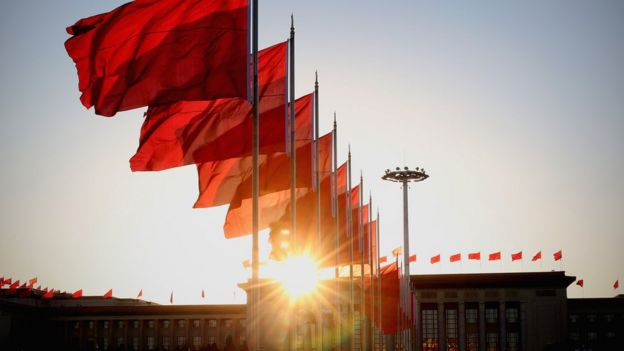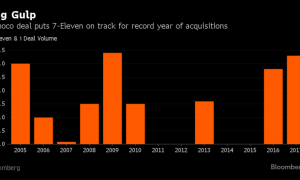
Call it the Brexit effect. Asian investors and traders were caught by surprise in June when the UK voted to leave the European Union.
At the time, most had priced in a scenario where the UK would vote to remain in the EU. When the opposite happened, stocks fell and sentiment soured.
Fast forward a few months, and this time round the environment has become even more uncertain.
As equity markets research house Nomura puts it "the election has become the largest 'known-unknown' markets have had to deal with since the global financial crisis (far more than the Brexit vote, previous US elections, multiple European elections, US debt ceiling debates, OPEC meetings or even Fed decisions)."
So no surprise then that investors in Asia have been extremely nervous ahead of the vote, and are hedging their bets this time round.
Fool me once, as the adage goes. Brexit proved that complacency has a high price-tag, and if there's anything that 2016 has shown us it's that never assume the impossible isn't possible.
So which candidate would be better for Asian investors and businesses?
President Clinton or President Trump?
- Trade:
When it comes to trade, Asia appears to prefer Clinton as she is seen as a case of "better the devil you know".
Both candidates have already indicated they won't push through with the Obama-backed Trans Pacific Partnership agreement but some US media have reported that if elected Mrs Clinton may be willing to support it in a different form.
Asian economies like Malaysia and Vietnam have most to benefit from the TPP being ratified.
Meanwhile, a Trump presidency is being seen as a major negative for Asia's trade prospects. The most likely scenario, according to research house Capital Economics, is the use of "the threat of tariffs as leverage in negotiations."
Mr Trump has said he'll slap a 45% tariff import on all US imports from China. Capital Economics says this would hurt China's electronics sector, which accounts for 50% of total Chinese exports to the US.
- Visas and immigration:
Again, a Clinton presidency appears to be Asia's pick when it comes to immigration and visas.
Capital Economics says that if Mr Trump were to be elected president, then his plans to "punish American companies that outsource jobs abroad" would hurt countries like the Philippines and India.
Both countries have major outsourcing industries which rely on American firms being able to continue to employ the millions of Filipinos and Indians who have seen their livelihoods improve as a result of increased wages in the outsourcing sector.
Mr Trump has also warned of banning immigrants from countries where there is a "proven history of terrorism against the US or allies". This is likely to hit countries like India, the Philippines and possibly Indonesia.
- Impact on shares and currencies:
The markets have spoken - Asian shares fell dramatically last week on news that the gap between Mr Trump and Mrs Clinton was closing. That's because a Trump presidency is seen as volatile for share markets and currencies.
Conversely, a Clinton presidency is seen as net positive for markets - for similar reasons as we've discussed above. After the FBI said that Mrs Clinton will not face charges over a new batch of emails on her private email server, Asian shares and the US dollar jumped in Asian trade against the Japanese yen.
Bear in mind market volatility should be expected in the lead up to an election and in its aftermath - so don't read too much into the daily see-saw of shares and currencies.
Longer term trends and trajectories are far more important, as are the economic policies the new president will back to support growth in the US. If the US continues on its recovery path, that could help to increase global demand, and lift global growth.
However, if the US becomes more protectionist, that would lead to Asian exporters looking for new markets and new trading partners.

So what next?
All of the political shenanigans may not have mattered in the past, as the US has always been the dominant economic and political superpower for the world, as Eeswar Prasad, Professor in the Dyson School at Cornell University, and the author of "Gaining Currency: The Rise of the Renminbi" points out.
"But times have changed," he writes. "If the US voluntarily withdraws from the world, one country - China - is better positioned than any other to fill the void."
It may already be happening, judging by the visitors China's president Xi Jinping has had over the last few weeks.
First, Filipino leader Rodrigo Duterte - former foe, now turned friend. And then hot on his heels - the Malaysian Prime Minister Najib Razak. Both spoke of warmer ties between Beijing and their countries, and both lauded China's attempts to reach out to South East Asia by funding infrastructure projects and investing in South East Asian companies.
Still, the US hasn't lost out to China just yet. In many parts of Asia, China is increasingly viewed with some envy as well as suspicion. Skirmishes over the South China Sea have raised tensions with Vietnam, Singapore and Indonesia.
But as Mr Prasad points out, "China may offer a poor alternative for global leadership, but it's hard not to see it as an increasingly credible one."
As American voters decide who their next leader is, global influence may not be their top priority. But the impact of whoever they choose will be felt in this region for years to come.
Click here to view original web page at www.bbc.com












